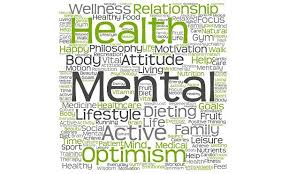Maintaining Positivity, Balance, and Mental Health
What's the status of your glass? Is it half-full or half-empty? Your view on life, your attitude toward yourself, and whether you are optimistic or pessimistic may influence your positive thinking, and it may even affect your health. Whether you are optimistic or pessimistic may reflect on how you dress positive thinking. Your outlook on life, your attitude towards yourself, and whether you have a glass of wine or champagne may all depend on how you look at the world around you.
Indeed, some studies suggest that many aspects of your health and well-being can be influenced by personality characteristics such as optimism and pessimism. A crucial aspect of efficient stress management is the optimistic thinking that typically comes with optimism. And with many health benefits, successful stress management is related. Positive thinking does not imply burying one's head in the sand and ignoring all of life's pleasures. Positive thinking involves dealing with unpleasantness in a more positive and effective manner. You're hoping for the best but are prepared for the worst.
The process of constructive thinking begins with the use of positive self-talk. Self-talk refers to the unsaid ideas that are always running through your head. Regardless of whether they're positive or bad, these are unconsciously held emotions. Some of your self-talk serves as a source of logic and reason. Other self-talk might lead to misunderstandings due to a lack of information.
Researchers still need to look into the connection between positive thinking and physical well-being. Positive thinking has been shown to have a variety of health advantages, including
1. a longer life expectancy
2. Lower levels of depression
3. a greater number of people are in distress
4. greater ability to cope with the common cold
5. better health, both physically and mentally
6. A reduction in mortality due to improved cardiovascular health
7. Enhanced coping ability during difficult times and stressful situations.
It's not obvious why optimistic thinkers experience better health. Maintaining a positive outlook may help you cope better with stressful situations, reducing the negative health consequences of stress on your body. People that are confident and upbeat tend to favor healthy lives; they get more exercise, eat better, and don't smoke or drink excessively. Not sure if your self-talk is optimistic or pessimistic? Adverse self-talk can take many forms. Here are some examples:
1. Filtering: The bad elements of a situation are emphasized, while the positive aspects are mostly ignored. Let's say, for example, you had a productive day at work. You completed all of your tasks ahead of schedule and were given high marks for a straightforward yet thorough job well done. You just think about how you're going to do even more chores that night, and you completely disregard the congrats you received.
2. When anything bad happens, you immediately place the responsibility on yourself. When you discover, for example, that a friend's evening out has been rescheduled, you assume that no one wanted to be near you.
3. Polarize, People who are polarised just view things as excellent or evil. There is no such thing as a middle ground. You're under the impression that you'll either have to be perfect or you'll be an utter failure.
You will discover how to change your negative ideas into positive ones. The approach is simple, but it will take time and effort to become ingrained in your mind. Here are a few methods to be and think more optimistically and positively:
To become more motivated and engage in more positive thinking, start by identifying areas in your life where you tend to dwell on the bad. This may be anything from your job to your daily commute to a relationship. Optimistically, you might begin by narrowing your focus to a single area.
Just keep an eye on yourself. Take regular breaks to reflect on your thoughts. If your emotions are very unpleasant, try to find a way to frame things in a more positive light.
Allow yourself to relax, especially in stressful circumstances, and try to grin or chuckle. Look for the humor in the mundane tasks you perform on a regular basis. When you laugh a lot, you feel better about yourself. It's important to maintain a healthy work-life balance by taking time to enjoy yourself, while both working and earning a living. Enjoy yourself from time to time, but don't forget to work hard as well. Everything in our life ought to be on an even playing field for everyone.
Also, be sure to read my most recent posts, which are filled with useful information. Remember to be happy, healthy, and to take pleasure in your life. Put an end to your anxiety about the future. Giving your all now will automatically lead to better results in the future. Also, you guys check out this fantastic blog:)
My most recent blogs:
Health and fitness:
https://bustlingmindd.blogspot.com/2021/09/health-and-fitness.html







